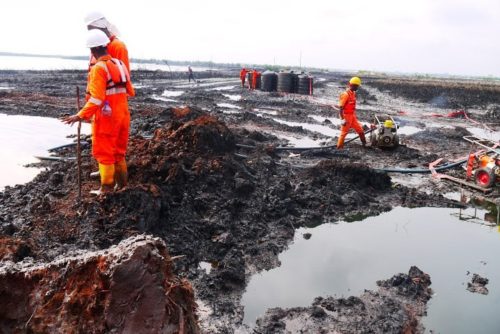Divestment: Why Niger Delta Communities Must Seek Environmental Justice

By Obiabin Onukwugha
As reactions continue to trail the resent decision by oil multinationals to divest their assets, Niger Delta communities have again been encouraged to seek environmental justice in order to hold the oil companies accountable for the degradation and pollution of their environment.
The latest call is coming from environmentalists who spoke at a summit on Oil Divestment and Environmental Justice at Agbarho Community, in Delta State.
Speaking during the event, which has its theme as “Strengthening Indigenous Knowledge to Bridge Climate Action gaps in transiting from fossil-fuels”, last Thursday, the convener, Prince Israel Orekha, stated that after the recent COP28 conference, it has become imperative to help local communities voices are heard in oil divestment and environmental justice.
Orekha, who is the Executive Director of Connected Advocacy, expressed worry that communities of the Niger Delta will be left with stranded assets, stranded personnel and a stranded community, as the IOCs are divesting without visible decommissioning plans in place to pay compensations.
He said: “After the recent COP28 conference, the imperative to ensure that local community voices are heard in oil divestment and environmental justice became more pronounced.
“Due to the constant neglect of local community issues at COP28, and other regional meetings, the devastating condition of our environment underscore the urgent need for action, particularly in regions like the Niger Delta, where communities bear the disproportionate burden of climate change impacts.
“According to the Environmental Protection Agency, the current change in weather/atmosphere across the country is not harmattan but rather an extreme form of air pollution with dire consequences on our health.
“Looking at the IOCs divestment without visible decommissioning plans in play to pay compensations, our community will be left with stranded assets, stranded personnel and a stranded community. The need for environmental accountability is imperative. We hope we can find ways to work together to create a more sustainable future for our planet.”
Also speaking, Babawale Obayanju, Co-Director of ‘Tell that Story’, said the degradation of the environment by the IOCs is a enough ground for the people of the affected communities to press for environmental justice.
Obayanju emphasised that the people of the Niger Delta needed to identify their challenges, their implications and how they can collectively address them.
On his part, Executive Director of Advocacy Center, Mfon Gabriel, harped on the need for the people to understand the legal framework behind divestment in order to pursue justice.
He said the federal government and people of the Niger Delta must hold the IOCs accountable over the divestment saga going on in Nigeria.
He also noted that it is unethical and polluters must be made to pay for damage to the environment.
He stated: “In order to hold IOCs accountable, we must understand the legal framework underlying the whole process.
“Knowing the beneficiaries, understanding the terms and conditions of the contracts etc would give the people an edge in demanding justice,” he noted, emphasising youth empowerment and policy advocacy. The destiny of the people lies in their ability to act.”
